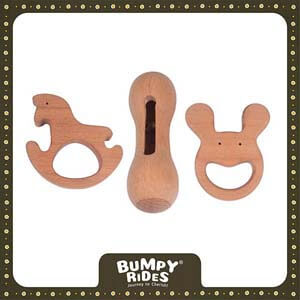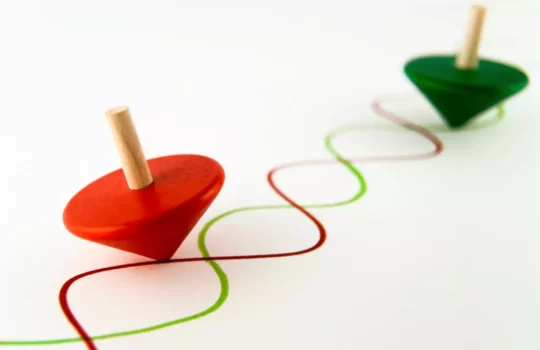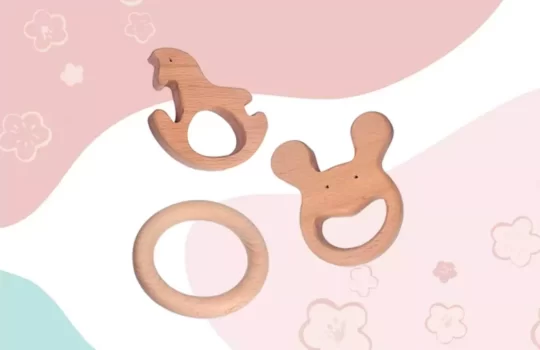Free Play – Why kids need more of it
March 20, 2022 2023-06-26 13:25
Free Play – Why kids need more of it
There is growing evidence to prove that the quality of adult interactions during play is more important than quantity. When children are allowed to take the lead, then the play is a lot more creative, imaginative, free-flowing, deep, elaborate and sustained.
What is Free Play?
Freeplay is basically unplanned and unstructured play with no end result in mind. There is no need for them to have any ability or skill to participate nor does it require any prompting, leading, or teaching.
In free play, parents or caregivers are meant to only listen and observe and intervene only when it's absolutely necessary. Parents are not there making rules, directing the children or making rules. The children should be left entirely to themselves. Remember, when you are trying to teach them or tell them something, you are only showing them the little you already know.
Take a step back, and watch their creativity and imagination in full flow as they create structures, form rules for a game, imitate the adults in their life or act out real-world scenarios. You may even be surprised to discover new things and how much they have imbibed from the world around them!
Some kids may prefer to play alone with a puzzle. Another child may want to doodle. Yet another kid may want to whip up a delicious dish by imitating a chef or watching you cook. Give kids full freedom to select their play materials, scenarios, and areas of interest. These are very important for children.
According to the Play England charity, “Free Play is children choosing what they want to do, how they want to do it and when to stop and try something else. Free play has no external goals set by adults and has no adult imposed curriculum. Although adults usually provide the space and resources for free play and might be involved, the child takes the lead and the adults respond to cues from the child.”
Children love playing. For getting the most out of free play, you need to create the right sort of environment that is nurturing and caring. Don’t worry that they are just playing; there is nothing more important that they could be doing!
What counts as Free Play?
Here are the benefits of Free Play for children
Refreshes and resets their brains
In today’s world where children move on from one activity to another, it puts a lot of stress on them. Engaging in free play where children use their imagination or they are in a state of wonder about the environment around them, will only refresh their brains. This is much needed for their mental health, overall well being and for developing social and emotional skills.Promotes their Physical development
When kids are playing a sport like soccer and not competing with each other to win or be better than the other kid, then they are engaging in free play. This is a great way for them to meet their physical activity needs. Kids are running around stretching their legs, using different parts of their body, trying out new moves on the slide or a hanging bar when they are allowed to free play. They are enhancing their fine and gross motor skills this way. They will learn to test their movements and boundaries on the playground equipment in the park. And it's just plain fun! When kids run around, play on their bicycle, jump around, climb trees, they are building healthy bodies and minds. Many kids these days are obese and this is mainly due to a lack of outdoor play. Free play helps to build stamina and physical strength. Did you know that free play helps children cope better at school, especially because the hours are long and it may seem a little tiring for them? When children are of sound physical health, they will get used to the classroom environment better. If you can take kids to a playground or your home playground offers physical equipment that poses a challenge such as jumping, climbing, running, hanging, pushing, pulling and even finer activities that require numbness such as balancing objects, manipulating objects, then you are giving them a place where they can indulge in a lot of free play.Promotes personal, social, and emotional skills
Free Play is fantastic for a kid’s social development. Here no adults are interacting, interfering or directing kids as to how to play. They will learn how to negotiate, resolve conflicts and differences of opinion about doing things or playing a game. They will also learn to share and face and overcome their fears. When adults don’t interfere, kids learn what they like or don’t like, handle disappointments with losing a game or when they don’t always get their own way, and invent new rules for games that they play often. All of this will build their confidence, independence and help them grow emotionally. When children play with others, they will learn to regulate their anger, fear, and other emotions. It is a way for them to handle their emotions better in various situations. Through free play, kids will develop a sense of self and learn to value others opinions and feelings and see things from another person’s perspective. Children will be better able to cope with new environments and experiences like starting school, moving houses. They will learn to go from being heavily supported to developing their personality, assertiveness and independence. Without play, children’s emotional development will be affected. This in turn will lead to a host of problems with attention, self-control and anxiety. Roleplay, which is a part of free play, is a vital aspect of this. Kids take on the role of adults and act out experiences and situations like going to the grocery store, paying the doctor a visit, ordering a meal at a restaurant etc. This will help them learn more about the society they are in and understand how to interact with people. Children learn the following social skills when they play with their friends, siblings or neighbours:- Negotiation
- Resolving conflicts independently
- Playing with other kids as a group
- Playing (working) towards a common goal.
- Coming up with new rules and learning to follow rules
- Developing empathy
- Knowing what socially acceptable behaviour is
- Communicating effectively
- Giving directions and following directions
- Seeing something from another person’s perspective
- Leading a group
- Learning to cooperate
Enhances their cognitive development, creativity and problem-solving skills
Free play contributes to the cognitive development of children. Free play is crucial for overall brain development. When kids explore, indulge in free play and learn, they will form new connections and pathways in the brain. You would be surprised to know that children’s brains process at double the speed as that of the brain of adults. So much brain development is happening during the first six years of life. The stimulation which a kid receives early on is what will determine how many neurons are formed and which do not. When you let children play by themselves, you can watch their creativity and imagination flourish! They will come up with interesting things to engage themselves with, invent fascinating stuff, and develop their thinking skills in the process. Usually, adults shouldn’t intervene and stay out of resolving conflicts unless someone’s safety is involved. Only then will children learn to deal with conflict, resolve them and learn to negotiate among themselves. You need to give them a chance to do so! During free play sessions, they will face so many challenges. When they know how to solve it, it's a critical skill that is needed during school. The best part about solving problems during play is that kids are a lot more relaxed and don’t see them as problems; just as a challenge, they need to overcome to get something done like how to make a tent out of blankets, how to stop their paper cups from tumbling down, and more. These are important skills that children need to learn to become well-rounded adults. If children have regular opportunities for free play, they can create their own ways of engaging themselves, creating their own environment and structures, at their own pace rather than looking to adults to lead activities the entire day. When these kids get older, they will know how to manage their “downtime” a lot better. The best part is that kids use the skills which they have learned and honed during free play and bring them in to solve a real-life or academic problem. When it's time for structured activity, whether that's lesson time or team sports activity under the guidance of a coach, they will be up for it.Language Skills
If you have noticed, children usually talk a lot about what they are playing, even when they are playing solo. It helps to increase their vocabulary skills. When they play with other children, that is even more opportunity for them to build on their language as they interact and discuss with each other. Children learn a lot from their peers. They teach each other words and phrases and develop a deeper understanding of words and their meanings. When they explore interesting scenarios, act them out or discover new experiences together, they trade vocabulary related to those scenarios and experiences. They will learn how to hold a conversation, when to pause, when to speak, how and when to listen and how and when to respond.Reinforces what’s learnt in the classroom
Children pick up a host of skills during free play. You will see them bringing what they learnt here to academic learning and sporting activities they participate in. During free play, children practise and process whatever they learn in their lessons. You will see them applying the concepts learnt in the classroom in real or make-believe situations. Free play is extremely important and great for preschoolers who need to get used to a more structured, school environment. Stacking toys of different heights and colours, for instance, can support the concepts of maths and colours. Exploring and manipulating materials can be helpful for science lessons.Free Play Toys for different age groups
For babies up to a year
Free Play toys are something they can see, touch and grasp. Toys of different colours, shapes, and textures can help develop their basic sensory and motor skills. Teething toys, rattles and play gyms are ideal toys.

For toddlers
Toddlers are more about exploring their surroundings. They play longer on their own and run around a lot too. Pretend play toys like kitchen sets, push and pull along toys, building blocks are musical drums, tents are perfect. Spinning tops are good too.

For preschoolers
Preschoolers are a lot more independent and more interested in playing with their peers. Playing catch, playing in the park on the swing, slide or handlebars, jumping rope - are all amazing choices. Toys like wooden balance boards can help with their gross motor skills and jigsaw puzzles can aid in keeping kids focused as well improve their memory.

These days, parents run around on hectic schedules. Children too are over-scheduled with school, extra-curricular activities, and organized sports. The importance and joy of a little free play can help kids discover their interests, build their confidence and independence and help in all-around development. When you play to have fun without any competition and comparison, everyone is happy and everyone wins!Children find great joy in free play! Don’t feel guilty the next time they are just “playing”. Younger kids especially need a lot of free play. Unstructured, outdoor play is more like a reset button. You need to find the balance between structured activities and unstructured, free play so kids can enjoy the best of both.






